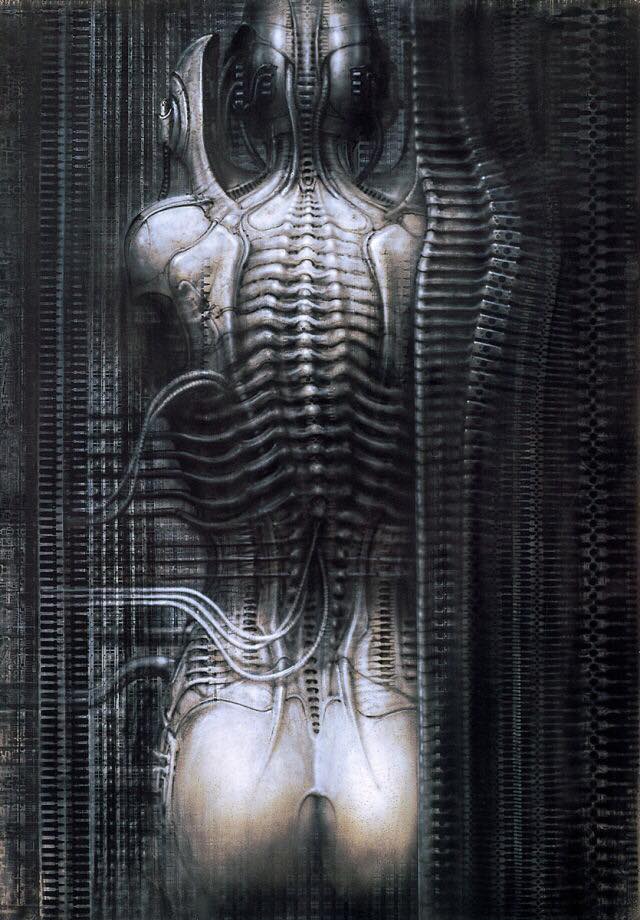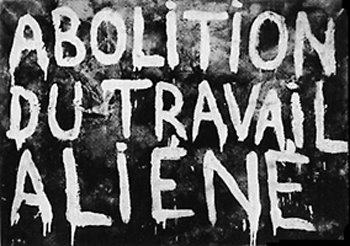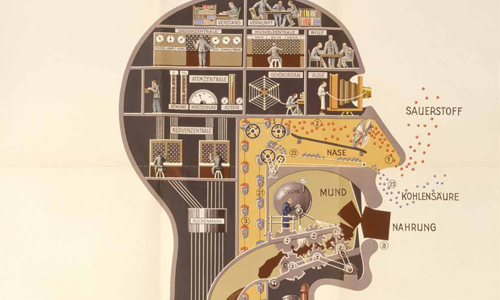Posted: Marzo 5th, 2017 | Author: agaragar | Filed under: au-delà, comune, crisi sistemica, digital conflict, epistemes & società, hacking, post-filosofia, postcapitalismo cognitivo | 18 Comments »
di Toni Negri
(SEMINARIO LE PIATTAFORME DEL CAPITALE, MILANO, MACAO, 3-4 marzo)
1. Nel dibattito sull’impatto del digitale sulla società, prendendo atto che le tecnologie digitali hanno profondamente modificato il “modo di produrre”(oltre al conoscere e al comunicare), si presenta la solida ipotesi che il lavoratore, il produttore sia trasformato dall’uso della macchina digitale. La discussione sulle conseguenze psico-politiche delle macchine digitali è talmente larga che vale solo la pena di ricordarla, anche se i risultati cui queste ricerche pervengono sono altamente problematici.

[–>]
Posted: Maggio 1st, 2015 | Author: agaragar | Filed under: anthropos, au-delà, bio, comune, Deleuze, epistemes & società, hacking, post-filosofia, postcapitalismo cognitivo, psichè, Révolution | 65 Comments »
by Matteo Pasquinelli

Abstract
The political economy of the information machine is discussed within the Marxist tradition of Italian operaismo by posing the hypothesis of an informational turn alreadyat work in the age of the industrial revolution. The idea of valorizing information introduced by Alquati (1963) in a pioneering Marxist approach to cybernetics issued to examine the paradigms of mass intellectuality, immaterial labour and cognitive capitalism developed by Lazzarato, Marazzi, Negri, Vercellone and Virno since the 1990s. The concept of machinic by Deleuze and Guattari (1972, 1980) is then adopted to extend Marx’s analysis of the industrial machine to the algorithms of digital machines. If the industrial machine can be described as a bifurcation of the domains of energy and information, this essay proposes to conceive the information machine itself as a further bifurcation between information and metadata. In conclusion, the hypothesis of the society of metadata is outlined as the current evolution of that society of control
pictured by Deleuze (1990) in relation to the power embodied in databases.
Keywords
algorithm, cognitive capitalism, information machine, immaterial labour, metadata, operaismo
[–>]
Posted: Novembre 29th, 2014 | Author: agaragar | Filed under: au-delà, bio, crisi sistemica, Deleuze, digital conflict, epistemes & società, hacking, kunst, Marx oltre Marx, postcapitalismo cognitivo, postoperaismo | 8 Comments »
by TIZIANA TERRANOVA

This essay is the outcome of a research process which involves a series of Italian institutions of autoformazione of post-autonomist inspiration (‘free’ universities engaged in grassroots organization of public seminars, conferences, workshops etc) and anglophone social networks of scholars and researchers engaging with digital media theory and practice officially affiliated with universities, journals and research centres, but also artists, activists, precarious knowledge workers and such likes. It refers to a workshop which took place in London in January 2014, hosted by the Digital Culture Unit at the Centre for Cultural Studies (Goldsmiths’ College, University of London). The workshop was the outcome of a process of reflection and organization that started with the Italian free university collective Uninomade 2.0 in early 2013 and continued across mailing lists and websites such as Euronomade, Effimera, Commonware, I quaderni di San Precario, and others. More than a traditional essay, then, it aims to be a synthetic but hopefully also inventive document which plunges into a distributed ‘social research network’ articulating a series of problems, theses and concerns at the crossing between political theory and research into science, technology and capitalism.
[–>]
[traduzione in italiano qui]
Posted: Ottobre 15th, 2014 | Author: agaragar | Filed under: au-delà, bio, comune, critica dell'economia politica, digital conflict, epistemes & società, hacking, Marx oltre Marx, postcapitalismo cognitivo | 27 Comments »
by TIZIANA TERRANOVA

Over the past few years, European social movements have struggled to find new ways of cooperating and connecting in order to oppose the verticalization of European governance. Following the crash of 2008, in fact, a regime of austerity, that is severe cuts to public spending, has gone together with a remodulation of modes of welfare and work inspired by the German model.
[–>]
Posted: Agosto 30th, 2014 | Author: agaragar | Filed under: au-delà, bio, digital conflict, epistemes & società, hacking, Marx oltre Marx, posthumanism | 7 Comments »
An Interview with Ben Campbell

C. Derick Varn: Marxian notions of science are characterized in two incompatible ways: I have heard Marxists and Marx being accused of proto-postmodern relativism and absolute social constructivism, and conversely as positivistic and crudely deterministic. Do both of these characterizations misunderstand something fundamental about Marx and Marxist-influenced epistemology?
Ben Campbell: In discussing Marxism’s relation to science, it is important to note that there is no one “Marxism.” Rather, it must be understood that Marxism frayed into several strands, particularly after Marx and Engels’ death, and especially after the political failures of the early twentieth century. One of the many areas in which this great divergence of Marxisms can be seen is in their relation to science.
[–>]
Posted: Aprile 16th, 2014 | Author: agaragar | Filed under: anthropos, au-delà, bio, comune, digital conflict, epistemes & società, hacking, Marx oltre Marx, post-filosofia, postoperaismo, Révolution | 7 Comments »
by Unemployed Negativity
This is the longer version of an old conference paper . It never quite became publishable; it is left here to the gnawing criticism of digital mice.

Materialism has always been the bastard stepson of philosophy. Its very position is paradoxical, if not impossible. It must use concepts and arguments to conceptualize and argue against the primacy of concepts and argument. This perennial problem is even worse today. If Marx was in some sense the most sophisticated materialist philosopher, elevating the material beyond the brute materiality of the body, to locate the material in the reality of production and the conflicted terrain of social relations, then one could argue that even this version of materialism is in jeopardy today. The economy, the last instance of materialist philosophy after Marx, can no longer be identified with the machines and noise of the factory, it has become digital, immaterial. What then remains of materialism when the economy has become ideal, determined more and more by the idealist category par excellence, speculation, and even labor has been declared immaterial, intersecting with beliefs and desires? At least the beginning of a response can be found in the seemingly paradoxical concept of “real abstraction.” This term, introduced by Marx, takes on a central importance in the work of Alfred Sohn-Rethel, where it is no longer a methodological necessity, but the cornerstone of a philosophy that seeks to understand the material basis of abstraction itself.
[–>]
Di Matteo Pasquinelli e Wietske Maas vedi: MANIFESTO DEL CAPITALISMO URBANO
Posted: Agosto 24th, 2013 | Author: agaragar | Filed under: 99%, au-delà, comune, digital conflict, epistemes & società, hacking, Révolution, vita quotidiana | Commenti disabilitati su Nuvole cinguettanti che offuscano i padroni della Rete
di Pizio Daniele
La rivoluzione o la rivolta non si fanno con Twitter, come è stato sostenuto con le primavere arabe. Il social network ha però il potere di veicolare punti di vista ostili al potere. Un volume sul suo uso politico.

Il sapere, è noto, non è fatto per comprendere ma per prendere posizione. Un’affermazione che sembra tanto più vera quando ci si ritrova tra le mani Blitzkrieg Tweet. Come farsi esplodere in rete, l’ultimo libro di Francesco De Collibus (Agenzia X, pp. 136, euro 12): dalla sua lettura, statene certi, trarrete spunti preziosi per decidere come schierare le vostre truppe sul campo di battaglia dell’informazione.
Una premessa è doverosa. L’autore (filosofo, informatico e animatore di spinoza.it) non ha dato alle stampe l’ennesimo manuale di guerriglia marketing. O almeno, non sembra essere stato mosso da quest’unico intento. Certo, il libro è denso di suggerimenti su come concepire le vostre bombe mediatiche, influenzare l’opinione pubblica e «incendiare» il terreno della comunicazione (possibilmente senza farvi terra bruciata intorno). Ma allo stesso tempo, sotto la superficie delle 130 gustose pagine pubblicate da Agenzia X scorre come un fiume carsico una stimolante riflessione sulla rete, le ambivalenze dei fenomeni sociali che l’attraversano e i pericoli che ne stanno mettendo a repentaglio la libertà.
[–>]
Posted: Gennaio 26th, 2013 | Author: agaragar | Filed under: hacking, Révolution | 7 Comments »
THE ETHICS AND AESTHETICS OF HACKING
by E. Barbara Coleman

Who are computer hackers? What is free software? And what does the emergence of a community dedicated to the production of free and open source software–and to hacking as a technical, aesthetic, and moral project–reveal about the values of contemporary liberalism? Exploring the rise and political significance of the free and open source software (F/OSS) movement in the United States and Europe, Coding Freedom details the ethics behind hackers’ devotion to F/OSS, the social codes that guide its production, and the political struggles through which hackers question the scope and direction of copyright and patent law. In telling the story of the F/OSS movement, the book unfolds a broader narrative involving computing, the politics of access, and intellectual property.
[–>]
Posted: Aprile 20th, 2012 | Author: agaragar | Filed under: hacking, vita quotidiana | 57 Comments »
di Arturo di Corinto per “Come si fa” di Franco Bifo Berardi (Manni Editore)
Autorevolezza contro autorità, competenza contro gerarchie, libertà contro controllo

All’inizio c’era l’attivismo.
Diverso dalla militanza nei partiti e nelle associazioni, l’activism è l’azione diretta dei movimenti di base per denunciare un torto, contestare una scelta politica e dare voce alla protesta sociale su questioni specifiche. Poi è venuto l’hack-tivism, l’attivismo al computer, l’azione diretta in rete con tecniche da hacker, e dopo ancora il media-attivismo, l’uso consapevole e critico di telecamere, televisioni di strada e web-tv autogestite. Oggi va di moda l’attivismo 2.0: giovani e meno giovani hanno abbracciato i social media (il web 2.0) per promuovere campagne sociali e fare attivismo oltre le forme tradizionali degli scioperi, delle occupazioni, dei boicottaggi, dei cortei e delle petizioni virtuali.
[–>]








